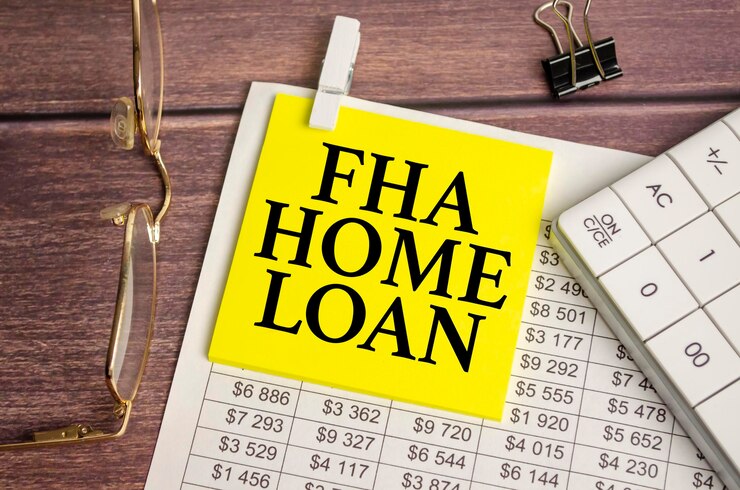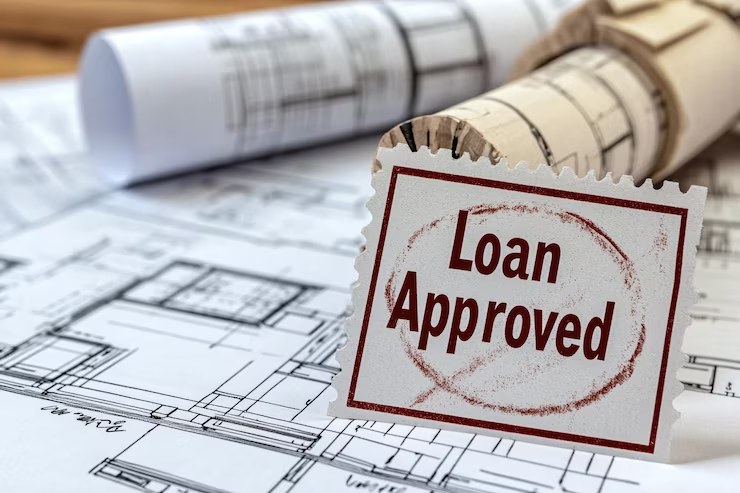If you are looking at the FHA Loan Application, it is a better way to buy a home with no perfect credit or a lower down payment. Loans approved by the FHA are backed with mortgage insurance, which is provided through private lenders-visit here.

The FHA insures these loans on single-family and multi-family homes in the United States and its territories. It is the world’s largest provider of private residential mortgage insurance, with more than 60 billion US dollars in an active insurance portfolio-visit here.
You can start an application online or meet with a loan officer for specialized advice, giving you control over your mortgage experience.
What is an FHA loan?
One of these programs could be the FHA loan, an option backed by none other than the Federal Housing Administration. Designed for those who would find it challenging to qualify for a conventional mortgage, the FHA loan offers more flexible credit score benchmarks and down payment options.
The FHA does not lend money to borrowers per se. Still, it guarantees loans made by approved lending institutions– lenders who have been approved and authorized the freedom to give further advantageous mortgage conditions because of lessened risk.
This promotes the opportunity for a broader range of individuals to buy homes, thus improving coverage in real estate markets. Either for the first-time home buyer or a more flexible lending option, an FHA loan may be one of the best loaning methods that you can choose from.
Find an FHA-approved lender:
The initial step of the FHA loan application is finding a participating lender. Thankfully, most banks, mortgage companies, credit unions—or even online lenders—can offer FHA mortgages. The best lender for you will depend on several factors, including your credit score and how you like to apply.
Credit score considerations:
Ensure your lender approves the FHA minimum score of 580 and others want a better credit score. A local lender may be your ticket if you prefer to speak in person or over the phone.
On the other hand, some lenders offer a streamlined online mortgage application for those who want a digital experience.
Down payment amount:
After you provide these essential details, the lender asks for several financial documents to substantiate your income, savings, and debts. Go to the “Documents” link below for a more detailed list.
Get Loan different lenders:
It is designed to simplify the loan process by providing a borrower with an estimated interest rate, monthly mortgage payments, and closing fees before committing any commitment.
The LE also includes details about the loan type and term, so you can be sure you are comparing mortgage offers on an apples-to-apples basis. (For example, a 15-year FHA loan would have much smaller payments than another of identical amounts and terms with anything over 30 years.
You must ensure that all your loan offers quote the identical Loan Type, term, and amount lent. Then, look at interest rates, annual percentage rates (APR), and upfront costs to find the best deal.
Order FHA appraisal:
When your loan application is processed, your lender will order an FHA-approved appraiser to assess the property you want to buy. This step is essential as it guarantees the property meets basic FHA’s minimal property standards and establishes its market price.
The appraisal provides an overview of the property’s condition and safety, healthiness, or structural strength. At this stage, you need to be aware that the property must fit into FHA guidelines just as much as the underwriter does.
FHA Lending Limits—Here, we provide full details on FHA lending limits and FHA loan property requirements.
How to Keep Your FHA Loan and Monthly Payments:
Once you are closed, do your best to continue good financial habits so as not to damage the standing of your FHA loan.
To keep your home, you must make regular mortgage payments, as you would pay property taxes and homeowner’s insurance if they were billed separately.
Remember to set up automated payments so you get all the mortgage payments and keep tabs on your loan statements to stay abreast of where you stand with the interest payments.
FHA loan conditions for 2024:
Getting approved for an FHA loan is pretty simple, but meeting these basic requirements will help your chances of making it happen. FHA loans are designed to be used by more people—the program allows for lower credit scores and smaller down payments compared to many conventional loans.

Let us give you in-depth information on what FHA loan requirements to expect as you confidently pursue the application process.
FHA loan requirements:
Credit score: FHA’s more lenient credit score requirements make FHA home loans available to borrowers from broader backgrounds. A minimum FICO score of 500 is required to apply.
Anyone with a FICO score of at least 580 can purchase the same property, albeit not without making an upfront payment—except if you go for FHA’s traditional route and keep down as much as 3.5% instead!
This is much more feasible than conventional mortgages, which generally require a credit score of at least 620. The higher your credit score, the better the loan you will secure.
Credit history:
One of the central components in receiving an FHA loan is your credit history. Most FHA lenders will only accept up to one 30-day late payment in the last year. Borrowers should have had no foreclosures in the past three years and not filed for bankruptcy within the last few years.
The purpose of these guidelines is to show that borrowers have a history of managing their financial responsibilities.
Down payment minimums:
Low down payments are a good draw with FHA loans. Qualify with a credit score of 580 or higher and work with just as little as you want to put down — at least 3.5%. Applicants with credit scores of 500-579 would need a down payment of $6,000.
While this provides greater flexibility to buyers who cannot put down hefty deposits, it may leave first-time buyers feeling that they have a saving mountain yet to climb.
Loan-to-value ratio limits:
Use the loan-to-value (LTV) ratio to determine your maximum eligibility for FHA loans. This is compared to the amount of loan you are obtaining concerning the home’s market value. The LTV is the ratio lenders use to assess how much risk they are taking.
FHA loan approval requires an LTV of 96.5% or less, so you must make a minimum down payment of at least 3.5%.
Closing costs:
Buyers must also pay closing costs in addition to the down payment. FHA loan lenders and third parties who might have a hand in the transaction (such as title companies or HOAs) can charge these fees for originating the mortgage, underwriting it, and just about any other reason.
Final fees vary between banks but generally range between 2% and 5% of the loan balance. These closing costs are in addition to your down payment, so you must budget for them upfront.
Debt to income ratio limits:
This is a number scale and will be looked at along with your debt-to-income ratio by any lender (more on the DTI below) making an FHA loan.
It measures the percentage of your gross monthly income that is charged to pay back revolving debts, such as credit card payments and school loans. Typically, DTI will be at most 45% for an FHA loan.
However, lenders will allow you to exceed the 43% cap if your application has other “compensating factors,” such as a large down payment or an excellent credit history. In addition, at most 31% of your gross monthly income should be dedicated to the house.
Your approval chances may increase if you know and can meet these FHA loan requirements. Remember that lenders might have additional requirements, so do yourself a favor and research as many offers as possible for competitive prices suited to your situation.
FHA loans Eligible Property Types:
Not only must the borrower qualify for an FHA loan, but so must the property of which the borrowers have yet to take ownership.
The agency sets these rules to ensure that property is suitable for the borrower and safe and protective as an investment.
Here, we break down the FHA loan property guidelines and requirements to help you identify if the holder meets these criteria for hob impotent immortal.
Property appraisal:
This is to ensure that the home meets HUD property standards, and it will confirm how much your house is worth.
You can get a lender-required appraisal that provides the house’s condition is good enough for an FHA loan and does not have any significant repairs or violates the local building code.
Primary house:
FHA loans are designated for properties the borrower intends to occupy as their primary residence. They are not eligible for investment houses or vacation homes.
The borrower needs to plan on moving into the property within 60 days after closing and living in it for most of the year.
The easiest one of all the types of property the FHA can insure is to get a single-family home financed. The properties must also meet all FHA property requirements; that is, they must be safe and habitable regarding safety, health standards, and structural soundness.
Multi-unit homes:
Sometimes, FHA loans can be used to buy multi-unit homes, such as duplexes or fourplexes. The borrower must reside in one of the units as their primary residence. A rental income option is also available to borrowers renting out the other units.
As with single-family houses, multi-unit properties must clear the FHA appraisal hurdle and meet those health and safety requirements.
Vacation homes and investment properties:
FHA loans are not available for second homes. The FHA loan is designed to purchase a borrower’s primary residence. The program is unavailable for those seeking to finance a vacation property or where the borrower intends to use it as a second residence.
FHA Loans Do Not Qualify for Investment Homes. However, the program will not permit a borrower to purchase properties they want to use exclusively for rental income but that the owner does not plan on occupying as their principal residence.
FHA loan limits:
With the FHA loan program, maximums (for example, the allowed amount you can borrow) typically vary depending on where in the U.S. In which an individual lives and/or plans to buy a home.
| Low | Cost | Area | Limits |
| Single | Single | Tri-plex | Four-plex |
| $420,680 | $538,650 | $651,050 | $809,150 |
Change from state-to-state what would be essentially required is federally mandated rates adjusted yearly based upon cost of living increases/to reflect any changes in property values determined by county etc.
Apply for an FHA Loan:
FHA does not provide loans directly, you must contact a private lender to apply for a loan. Most lenders are approved by the FHA, meaning you have a wide selection of options for finding one.

Luckily, applying for an FHA loan is one of the simplest ways to get into real estate. When you pick the lenders to use with, their own underwriters and online systems will guide you in each way in the entire process.
Have your financial documents easily accessible to streamline the process, so no hold is placed on aid over verification requirements.
- local credit unions and banks.
- nationwide banks.
- Web home loan authorities.
The loan application is the next step after determining who your lender would be. Most of this process can be done online, but some lenders include — or even require — phone calls or emails with a loan officer.
- First and Last Name Social Security Number.
- A state-issued photo ID or a valid driver’s license.
- Income and employment history.
- Details about the property ( address and purchase price)
You can also mitigate its nature by making all loan applications within 45 days, as they are considered one single inquiry.
Find out the advantages and disadvantages of an FHA loan:
Because these loans come with benefits and pitfalls, there are some applicants for whom the FHA option is a good fit. And others prefer to go with another loan type instead.
- flexible credit standards (as low as 500 with only 10 % down)
- Higher debt-to-income thresholds than most other mortgage products.
- Loans are assumable in certain situations.
Brought down advances (for the individuals who qualify, as meager as 3.5% with a credit score 580+).
Disadvantage of FHA loan:
Mortgage Insurance: Mortgage insurance is required and often comes with upfront fees as well as annual premiums for the life of your loan.
County-to-county loan limits vary and can restrict one’s purchasing ability in more expensive locations.
Purchased homes must meet safety, security, and structural standards. Non-conventional loans may have slightly higher interest rates Primary dwelling only.
FAQs:
How Can I Get an FHA Loan?
When applying for an FHA loan, your first step is examining the program’s standards to determine if you qualify.
Requires a minimum down payment of 3.5% and your credit score to be at least 500 (580 to qualify for the lowest down payment).
Can I apply for a standalone FHA loan?
Being married or not is not a factor in determining eligibility for an FHA loan, so long as you are a United States citizen.
How Long Does FHA Approval Take?
It may take a full FHA mortgage process, which includes the period from the time you submit your applications to the closing date, which can run 30-60 days.
What amount of money is needed for an FHA?
With an FHA mortgage, you can buy a house using as little as three and a half percent of the price to be paid later. Except that closing charges will also set you back 2% to five%.
If your house is worth $300,000, you should have saved at least:·For a down payment of 3.5% (required):$10,500·Plus closing costs of 2-5%:$6-$15K.











Hi there! Do you know if they make any plugins to help with Search Engine Optimization? I’m trying to get my
site to rank for some targeted keywords but I’m not seeing very good results.
If you know of any please share. Thank you! I saw similar article here: Blankets